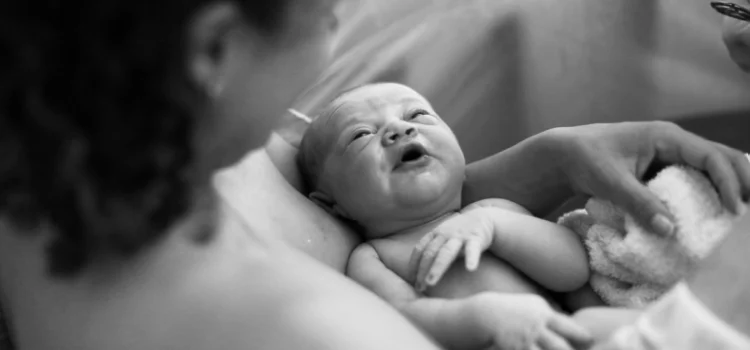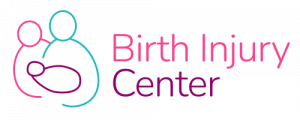Florida Birth Injury Lawyer
When you entrust a healthcare provider with your baby’s birth, you expect them to uphold the medical standard of care. If they fail this duty through negligence, the results can be life-altering. If you believe your baby suffered a birth injury due to negligence, we can connect you with a Florida birth injury lawyer.

- Last Updated Date: February 5, 2026
Childbirth is often an inherently dangerous process, but many complications are avoidable with proper precautions from health care providers. When a health care provider deviates from the standard of care before, during, or after the birth of a baby, the baby may experience a birth injury.
If a medical professional’s negligence caused your baby’s birth injury, you may be eligible to seek compensation by filing a birth injury lawsuit. The team at the Birth Injury Center can connect you with an experienced Florida birth injury lawyer who can help you determine if you have a claim for compensation and move your case forward.
Birth Injury Basics
More than 210,000 babies are born each year in Florida. While each of these births unfolds uniquely, most result in minimal complications. In many cases, a reasonable health care provider can take precautions that minimize the likelihood of complications and reduce the severity of unavoidable ones.
Sadly, not all providers take the appropriate measures during the events surrounding childbirth, and the baby may suffer unnecessary harm. Such negligence may cause a birth injury.
Some of the most common types of birth injuries include the following:
- Skull fracture
- Caput succedaneum, a type of swelling of the scalp
- Cephalohematoma and subgaleal hemorrhage, which involve the accumulation of blood under the scalp
- Epidural hemorrhage, subarachnoid hemorrhage, intraventricular hemorrhage, and subdural hemorrhage, which involve the accumulation of blood between the brain and the skull
- Cranial nerve injury
- Erbs-Duchenne palsy and Klumpke’s palsy—two types of injuries to the brachial plexus, a network of nerves in the arm and shoulder
- Spinal cord injury
- Clavicular fracture, also known as a broken collarbone
- Humerus fracture, or a broken bone in the upper arm
- Subconjunctival hemorrhage, which occurs when blood vessels break underneath the surface of the eye
- Bruising and lacerations
- Subcutaneous fat necrosis, which occurs when the baby’s fat tissue becomes inflamed
- Abdominal visceral injuries, which may include hemorrhages into the internal organs
- Birth asphyxia, which may lead to hypoxic-ischemic encephalopathy and cerebral palsy
No two birth injuries are exactly alike. Some may clear up quickly without medical intervention, while others may result in profound, lifelong disabilities for the infant. Occasionally, a baby may pass away due to a birth injury.
When Is a Health Care Professional Liable for Birth Injuries?
All medical decisions require a careful comparison of the risks and potential benefits. Sometimes, a birth injury is unavoidable or necessary to avoid greater harm or damage to the baby or mother. However, many result from negligence from health care providers.
Birth injury claims typically are a form of medical malpractice. Generally, a medical professional is liable for malpractice only when their negligence caused their patient’s injury. Your birth injury claim must meet the following four elements of a medical malpractice claim to be eligible for compensation:
- Duty: The health care provider owed your child a duty of care to act as a reasonably competent medical professional would under similar circumstances.
- Breach: The medical professional breached their duty by failing to provide the standard of care.
- Causation: The medical professional’s breach directly harmed your child.
- Damages: Your child sustained an injury or other losses.
Negligence in birth injury claims focuses on what the medical professional should have done based on the standard of care for similar situations.
If their acts or inaction harmed your baby, but any other reasonable medical professional would have done the same to prevent greater harm, they may not be liable. On the other hand, a deviation from what a reasonable medical professional would have done in the same circumstances may be grounds for a negligence claim to hold them liable.
What Is the Statute of Limitations for Birth Injury Cases in Florida?
There is no time to lose if you suspect you have grounds to bring a birth injury claim in Florida. Florida has a deadline for medical malpractice claims, referred to as the statute of limitations. If you don’t take action before the statute of limitations runs out, you may be unable to seek compensation for your child’s birth injury.
Under Florida Statutes §95.11, the statute of limitations for most medical malpractice claims is two years. The countdown begins when the medical negligence occurred or you should have reasonably discovered the link between the negligence and the resulting injury. The maximum allowed time between the malpractice incident and the filing of a claim is four years.
However, Florida has a special exception for cases involving harm to a minor child, so the two-year deadline usually applies only to birth injuries involving the mother. Under a 1996 law known as Tony’s Bill, most malpractice claims on behalf of a child injured at birth must be filed before the child’s eighth birthday.
This extension of the statute of limitations is particularly helpful in birth injury claims since certain conditions don’t exhibit symptoms until several years after birth. Even when the injury is obvious at birth, the extent of the damage may not be clear until the child is older.
However, the eighth birthday deadline does not apply to all cases. If the parents could have reasonably discovered the child’s birth injury before the child turns eight, the extension might not apply.
How to File a Birth Injury Lawsuit in Florida
The first step in seeking compensation for a birth injury is to meet with a Florida birth injury lawyer. They will carefully evaluate your case and determine if you have a viable birth injury claim.
If you and your attorney agree to proceed with a birth injury lawsuit, your attorney will guide you through your next steps. Usually, they’ll provide the liable party—known as the defendant—a pre-suit notice. This notice should include an affidavit from a medical expert verifying that a medical professional has reviewed the claim and believes it has merit.
Under Florida Statutes § 766.106, the defendant has 90 days after receiving the pre-suit notice to decide if they want to try to settle the case. If the case does not settle, you’ll have 60 days to file a lawsuit.
Your case could potentially settle before trial if both parties are willing to attempt further negotiations. If your case proceeds to trial, a judge or jury will decide whether to award compensation for your child’s birth injury.
What Evidence Do I Need?
The stronger the evidence supporting your birth injury claim, the more likely you will receive maximum compensation for your family’s losses. Medical records comprise most of the evidence in Florida birth injury lawsuits. Medical records related to the pregnancy, labor, delivery, and the care provided after delivery care could potentially strengthen your case.
Examples of the types of medical records that may support a birth injury claim include:
- Notes from prenatal check-ups
- Sonogram images and reports
- Results from nonstress tests, biophysical profiles, contraction stress tests, and other pregnancy procedures
- Blood test results for either the pregnant mother or the baby
- X-ray, CT, and MRI images of your child after birth
- Your child’s medical charts
This evidence can show that the health care provider’s actions or inactions caused your baby’s birth injury. It can also help demonstrate the damages your family has suffered due to the birth injury.
Another key form of evidence is medical bills, which may include receipts for medical expenses already paid, explanations of benefits from your insurance company, hospital bills, and notices from medical debt collectors. This type of evidence demonstrates the effects of the birth injury on your family’s finances.
Florida’s Neurological Injury Compensation Association
In some cases, proceeding with a birth injury lawsuit may not be possible. Fortunately, Florida has implemented a program to compensate families who’ve suffered certain types of neurological birth injuries. Eligible families do not need to prove that a medical professional was negligent to obtain compensation.
The compensation from this program, known as the Neurological Injury Compensation Association, or NICA, is significantly lower than what could be obtained through a conventional lawsuit. However, pursuing compensation through this avenue is often much easier than going through a malpractice lawsuit. The Florida legislature created it as an alternative to medical malpractice lawsuits and lengthy court proceedings.
To be eligible for NICA benefits, your child must meet the following criteria:
- Born in a Florida hospital
- Sustained an injury to the brain or spinal cord due to oxygen deprivation or mechanical injury during or immediately after labor or delivery
- Sustained permanent and substantial mental and physical impairments not caused by a genetic or congenital abnormality
- Obtained obstetrical services from a physician who participates in the NICA program or a certified nurse midwife who practices under the supervision of a participating physician
- Weighed at least 2,500 grams at birth for a single-gestation pregnancy and at least 2,000 grams at birth for a multiple-gestation pregnancy
It’s important to note that doctors and nurses can register for coverage under NICA. If a NICA-registered medical professional caused your child’s birth injury and your case qualifies for eligibility, you may be limited to seeking compensation through a NICA claim. If so, you’ll be unable to file a lawsuit. However, there are exceptions. A skilled and knowledgeable Florida birth injury lawyer can evaluate your case and determine your options.
What Compensation Can You Receive for a Birth Injury Case in Florida?
Birth injuries don’t just cause physical suffering to the child—they can also have long-term effects on a family’s financial and emotional welfare. No amount of money can undo the harm done, but the compensation available in a birth injury claim can be a vital resource in allowing your family to begin moving forward.
Depending on the circumstances of your case, your birth injury settlement or jury award could include compensation for any of the following:
- Past and future medical expenses related to the diagnosis and treatment of the birth injury, such as surgical procedures, rehabilitative services, medications, and supportive equipment
- Travel expenses for any necessary travel to and from medical appointments
- Lost wages you or your partner sustained to take care of your child
- Lost wages your child is expected to sustain over their lifetime due to the birth injury’s impact on their earning capacity
- Pain and suffering
- Emotional distress
- Loss of enjoyment of life
Florida once had a cap on damages recoverable in medical malpractice lawsuits. However, the state’s Supreme Court struck down that cap in 2017. The state currently has no cap on compensation for damages in birth injury claims.
Predicting Future Losses
Since a birth injury happens at the start of a child’s life, most birth injury damages have not yet manifested when it’s time to file a lawsuit. That’s why a birth injury lawsuit must consider the future losses for the child and family.
The future losses associated with a birth injury may include lifelong medical expenses, lost wages for the child, the cost of day-to-day care that the child may need when their parents can no longer care for them, and more.
These losses frequently make up the majority of the compensation amount available in birth injury lawsuits, making them the most important factor in determining how much compensation your family is entitled to. Creating a long-term life and care plan for your child can be a key step in calculating the full extent of future losses.
A Florida Birth Injury Lawyer Can Help
If your child has suffered a birth injury, you are not alone. An experienced birth injury lawyer in Florida is ready to hear your story, explain your legal options, and help you pave the way to a brighter future.
Contact the Birth Injury Center today to learn more and get started.
- Last Updated Date: February 5, 2026
"*" indicates required fields

